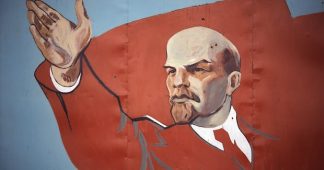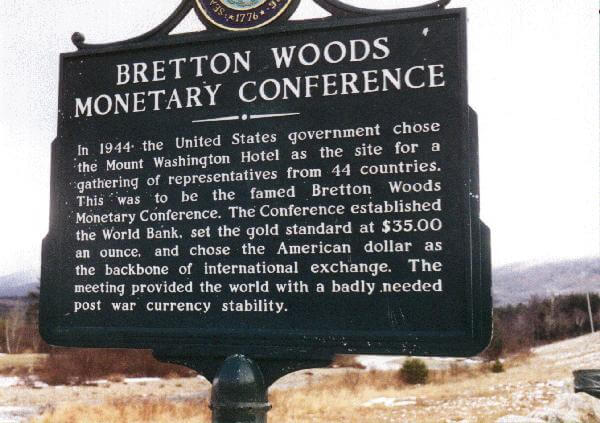HISTORICAL EXPERIMENTS
Two dissimilar men with different goals can still have a lot in common, writes Prabhat Patnaik
At first sight no two persons could have been more dissimilar. One was a Cambridge don, with more than one foot in the British government; a supporter of the Liberal Party, staunchly opposed to the Bolshevik Revolution; an aesthete and a member of the Bloomsbury Group; a life peer in imperial Britain, and a solid, if sensitive, member of the British establishment. The other was a Russian revolutionary, spending years in exile in acute penury, immersed in bitter conflicts among the émigrés, until suddenly confronted with a revolutionary uprising whose strivings and possibilities he comprehended with such clarity that he came to lead it, facing a civil war, a typhus epidemic, and an assassination attempt that ultimately claimed his life. The secure tranquillity of the life of the one contrasted sharply with the tempestuous violence that continuously haunted the life of the other. What could these two have in common?
For a start each felt a deep intellectual respect for the other, despite their political differences. In his report to the second congress of the Communist International, having called John Maynard Keynes “a British bourgeois pacifist”, “a petit bourgeois philistine” and “an implacable enemy of Bolshevism”, V.I. Lenin went on to base his entire thesis about why conditions were ripe for a world revolution on Keynes’s analysis in The Economic Consequences of the Peace. He even paid Keynes the compliment that “nobody had written about the condition of capitalism better than Keynes”. Keynes, on his part, not only referred in several places to Lenin’s “brilliance”, but, in this same book, said apropos of inflation: “Lenin is said to have declared that the best way to destroy the capitalist system is to debauch the currency; …Lenin was certainly right.”
But mutual intellectual respect among bitter adversaries is neither unusual nor particularly remarkable. What is really common to both these thinkers is their belief that the hegemony of finance in the period of maturity of capitalism had brought about a denouement where it became impossible for the system to go on as before. Of course each had his own understanding of why finance had made capitalism impossible, and each had his own reading of where to go from there. But the belief that a sheer continuity of the existing order was no longer possible was common to both.
Keynes saw the hegemony of finance as saddling capitalism with such extraordinarily high levels of unemployment that people, he feared, would not for long tolerate such an inhumane system. Under this hegemony, speculation was no longer a mere bubble on a steady stream of enterprise, but became a torrent that buffeted enterprise around. This became particularly so after the prop that had sustained 19th-century capitalism, namely the pushing of the frontier, had reached its limits. Not only did employment get determined largely by the whims and caprices of speculators, but in the absence of this prop would remain much higher than before, of which the Great Depression was a manifestation. He wanted the system to become more humane in order to survive the challenge of socialism. And this it could do by ensuring, through systematic State intervention in demand management, that the level of employment was made independent of the whims and caprices of financial speculators.
Lenin by contrast saw finance capital as striving everywhere for domination and for the acquisition of “economic territory” at the expense of rivals. Hence the rivalry between different “national” finance capitals (belonging to big “nations”), each backed by “its” State, would henceforth take the form of bloody inter-imperialist wars, of which the First World War was a manifestation. Escape from this predicament was possible only by overthrowing the entire system of finance-dominated capitalism and by ushering in socialism.
The turn of events was such that the ideas of both these thinkers were tried out in practice, a fate denied to most and another element that is common to both. Keynes’s proposal for State intervention in demand management in capitalist economies had few takers in the beginning, a fact that allowed the Great Depression to persist outside of the fascist countries right until the eve of the war when military preparations against the threat of fascism finally pulled up levels of employment and activity. But in the post-war period, with the balance of class strength shifting in favour of the working class across the advanced capitalist world, of which the emergence of social democracy was a manifestation, State intervention in demand management got institutionalized, producing the so-called “Golden Age of capitalism”. And as regards Lenin, the response generated by his call for the overthrow of capitalism, the Bolshevik Revolution and the formation of the Communist International, the struggle of the Soviet Union against fascism, its contribution to post-war decolonization and the spread of socialism, constitute together the epic saga of the 20th century.
But, again by an irony that unites both these thinkers, the historical experiments unleashed by them, despite remarkable early promise, could not reach successful fruition. The process of globalization of finance made the nation state that was supposed to override the whims and caprices of finance, subservient precisely to these very whims and caprices for fear of capital flight; as a result we have the current bizarre spectacle of capitalist countries enacting one after another ‘austerity measures’ in the midst of a recession, which will only accentuate the recession. Keynes would be turning in his grave at this absurd course of events. Likewise, the Soviet Union founded under Lenin’s leadership no longer exists; communist parties, barring a few, have dwindled into insignificance; the socialist credentials of China and Vietnam are barely visible and have to be established by the committed few through elaborate theoretical and statistical exercises; and a question mark hovers over the fate of Cuba, buffeted by imperialism. Those who invoke either Keynes or Lenin today are few and far between.
Does this mean then that the projects of both Keynes and Lenin are equally passé? The answer is no, and this constitutes the big contrast between the two. Because Lenin’s project was grand, nothing short of bringing about a wholly new world order, the like of which mankind had only dreamt of but never seen, and that too against the bitterest possible opposition from the propertied classes, he was acutely aware of the prospects of the failure of his particular experiment. In fact, after Soviet power had lasted three months, he had remarked gleefully: “We have lasted longer than the Paris Commune!” Because of the grandeur of his project the possibility of the failure of his particular experiment was anticipated by Lenin. But not so with Keynes.
Since his objective was to defend the system of private property against socialism, he not only expected no systematic opposition from the propertied classes, but even attributed whatever opposition he actually encountered from them to mere intellectual failure on their part. After all, if demand management by the State increased the level of activity and employment in the economy, then that would benefit both the workers (through larger employment) and the capitalists (through larger profits). So the predicament of late capitalism was one from which, if one had the correct intellectual comprehension, one could improve everybody’s condition. What Keynes did not see is that State intervention in capitalism is something which sets off a dialectic of its own that ultimately subverts the domination of capital over labour. Not that Great Depression-levels of mass unemployment are necessary for capitalism but the elimination of such levels of mass unemployment through State intervention undermines the social legitimacy of the system. The setback to Lenin’s project would not have surprised Lenin; the setback to Keynes’s would have surprised Keynes. Lenin’s project will be revived, but not Keynes’s, except as a staging post in the march towards Lenin’s goal.
Published in https://www.telegraphindia.com











